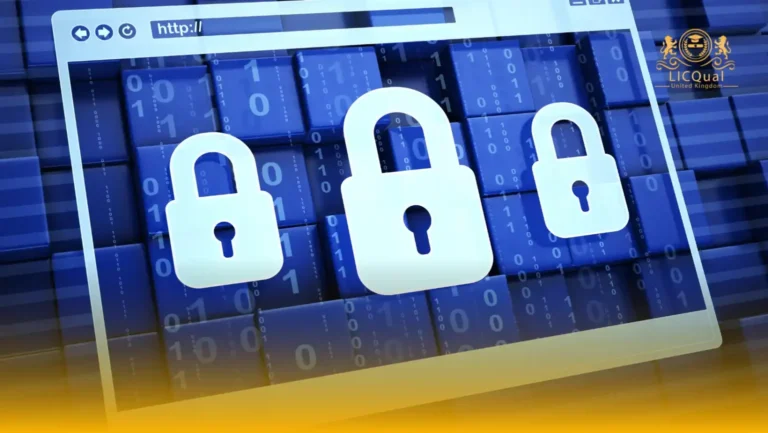The LICQual Level 2 Certificate in AI Risk Management and Incident Response is designed for professionals looking to advance their understanding of managing risks and responding to incidents within the fast-evolving field of Artificial Intelligence (AI). With AI technologies becoming an integral part of business operations, the need for skilled individuals to manage AI risks, safeguard systems, and handle incidents effectively is more important than ever.
This course offers a deeper dive into the challenges posed by AI and equips you with the knowledge and tools to mitigate these risks and respond efficiently. Whether you are an IT professional, risk manager, or working in cybersecurity, this qualification will enhance your ability to protect AI systems and handle incidents with confidence.
The LICQual Level 2 Certificate in AI Risk Management and Incident Response provides an in-depth exploration of the essential concepts in managing AI-related risks. The course covers the identification and assessment of risks associated with AI technologies, such as privacy concerns, data breaches, security vulnerabilities, and the ethical implications of AI. You will gain practical skills to design and implement risk management strategies that align with best practices, ensuring the safe deployment and operation of AI systems.
Additionally, this qualification focuses on incident response, equipping you with the tools to respond to AI-related incidents effectively. You will learn how to develop robust incident response plans, identify potential AI system failures or attacks, and implement solutions to recover swiftly and minimize operational disruptions.
By the end of the course, you will have the expertise to manage AI risks and handle AI incidents confidently, making you a key asset in any organization that uses AI. This qualification is perfect for those looking to advance their careers in AI risk management, cybersecurity, or technology risk assessment, with practical knowledge that can be applied immediately in the workplace.
Course Overview
Qualification Title
LICQual Level 2 Certificate in AI Risk Management and Incident Response
Total Units
6
Total Credits
18
GLH
72
Qualification #
LICQ2200308
Qualification Specification
To enrol in the LICQual Level 2 Certificate in AI Risk Management and Incident Response, candidates must meet the following entry requirements:
- Educational Requirements: Applicants should have a minimum of a high school diploma or equivalent. A basic understanding of technology or AI concepts is recommended but not mandatory. Having prior knowledge of risk management, cybersecurity, or IT-related fields will be beneficial.
- Experience: While no specific professional experience is required, individuals with a background in technology, cybersecurity, AI, or risk management will find the course more accessible. This course is ideal for individuals who have a foundational understanding of AI or related fields and wish to deepen their knowledge.
- English Language Proficiency: Participants should have a basic level of English proficiency, sufficient to understand course materials, engage in discussions, and complete assessments. A general understanding of written and spoken English is necessary for effective participation.
- Age Requirement: Candidates must be at least 18 years of age at the time of enrolment.
|
Qualification# |
Unit Title |
Credits |
GLH |
|---|---|---|---|
|
LICQ2200308-1 |
Advanced Techniques in AI Risk Management |
3 |
12 |
|
LICQ2200308-2 |
Incident Response Frameworks for AI |
3 |
12 |
|
LICQ2200308-3 |
Legal, Ethical, and Regulatory Considerations |
3 |
12 |
|
LICQ2200308-4 |
Risk Mitigation in AI Technologies |
3 |
12 |
|
LICQ2200308-5 |
Crisis Management and Recovery for AI Systems |
3 |
12 |
|
LICQ2200308-6 |
Communication & Documentation for AI Incident Response |
3 |
12 |
By the end of this course, learners will be able to:
Advanced Techniques in AI Risk Management:
- Apply advanced techniques for identifying, assessing, and mitigating risks associated with AI systems.
- Utilize industry-leading tools and frameworks to manage AI risks in complex, real-world environments.
- Tailor risk management strategies to different AI applications and technological contexts.
Incident Response Frameworks for AI:
- Design and implement comprehensive incident response frameworks specific to AI systems.
- Develop effective processes for detecting, responding to, and recovering from AI-related incidents.
- Evaluate and improve the efficiency of incident response protocols to minimize disruption to AI systems.
Legal, Ethical, and Regulatory Considerations:
- Understand and assess the legal and ethical implications of AI risk management and incident response.
- Apply relevant regulatory guidelines and industry standards to ensure compliance in AI systems.
- Navigate the legal complexities surrounding AI, including privacy laws, data protection, and intellectual property rights.
Risk Mitigation in AI Technologies:
- Identify and implement risk mitigation strategies to reduce vulnerabilities in AI technologies.
- Develop a proactive approach to risk mitigation, focusing on the long-term security and sustainability of AI systems.
- Analyze the effectiveness of risk mitigation strategies and adjust them based on emerging risks and evolving technologies.
Crisis Management and Recovery for AI Systems:
- Develop crisis management strategies tailored to AI-related incidents and system failures.
- Implement recovery plans to restore AI systems and services following a major incident.
- Evaluate crisis management techniques and ensure minimal operational impact during AI system disruptions.
Communication & Documentation for AI Incident Response:
- Establish clear communication channels for reporting and responding to AI-related incidents.
- Create comprehensive incident response documentation, including detailed reports, action plans, and post-incident reviews.
- Effectively communicate with stakeholders about AI risks, incidents, and recovery efforts to ensure transparency and informed decision-making.
This diploma is ideal for:
- Professionals working in cybersecurity, risk management, or IT who want to specialize in AI-related risks and incident response.
- AI developers, engineers, and data scientists looking to enhance their knowledge of managing risks in AI systems.
- Managers, business leaders, and decision-makers overseeing AI projects, who need to ensure risk mitigation and incident response strategies.
- Compliance officers, legal advisors, and professionals involved in AI governance, data protection, and regulatory compliance.
- Professionals responsible for creating or maintaining incident response plans for AI technologies.
- Consultants and advisors in technology, security, or risk management who want to expand their expertise in AI risk management.
- Individuals with a background in AI, technology, or business looking to gain advanced skills in AI risk management and incident response.
- Those working in industries like finance, healthcare, manufacturing, or any sector increasingly implementing AI technologies and requiring specialized risk management knowledge.
Assessment and Verification
All units within this qualification are subject to internal assessment by the approved centre and external verification by LICQual. The qualification follows a criterion-referenced assessment approach, ensuring that learners meet all specified learning outcomes.
To achieve a ‘Pass’ in any unit, learners must provide valid, sufficient, and authentic evidence demonstrating their attainment of all learning outcomes and compliance with the prescribed assessment criteria. The Assessor is responsible for evaluating the evidence and determining whether the learner has successfully met the required standards.
Assessors must maintain a clear and comprehensive audit trail, documenting the basis for their assessment decisions to ensure transparency, consistency, and compliance with quality assurance requirements.







